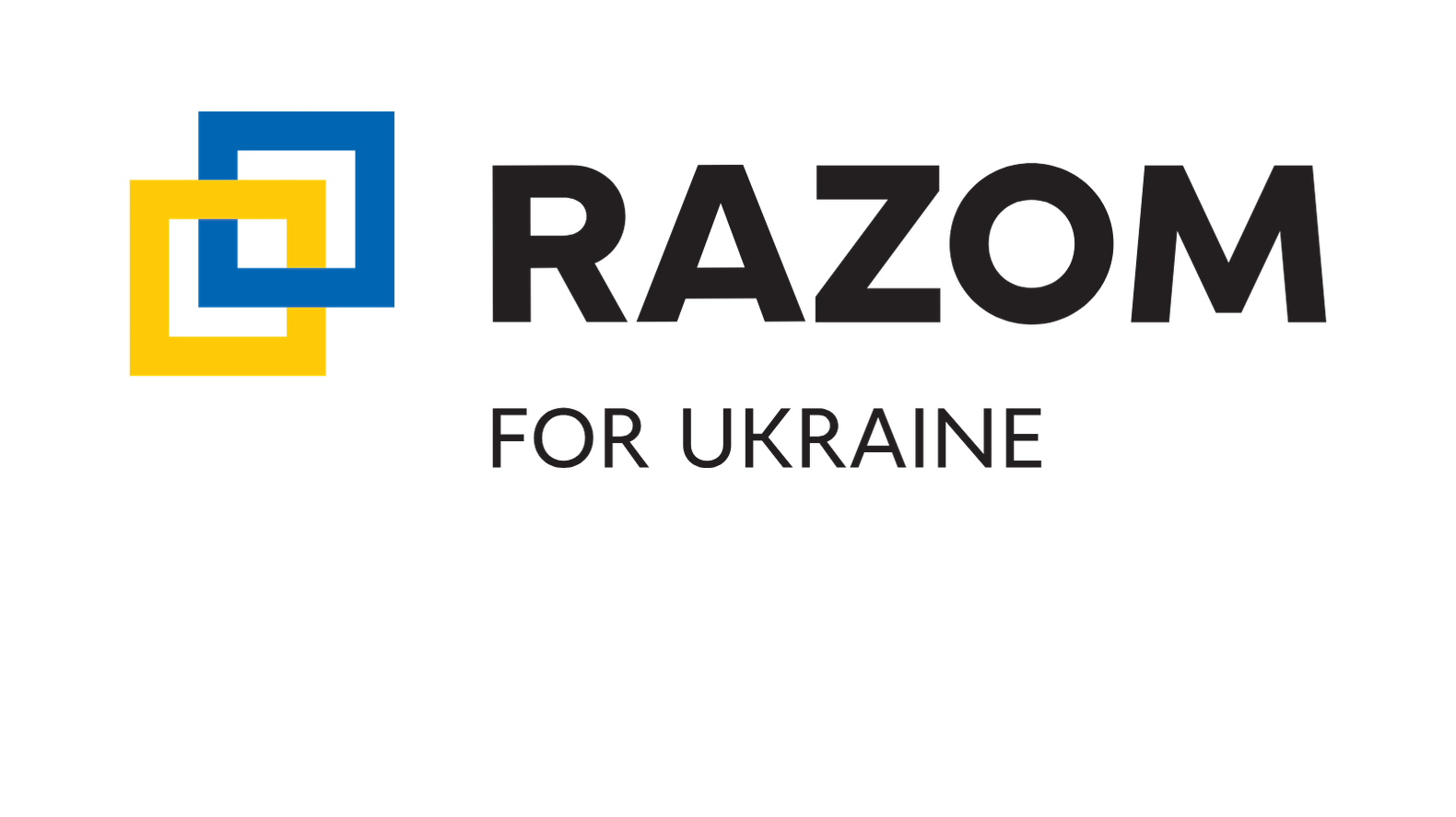On April 22, 1970, the United States marked the first Earth Day — a bold, collective call to protect the environment and demand a better future. In the 55 years since, Earth Day has grown into a global movement. Today, that call feels more urgent than ever — especially in Ukraine, where Russia’s full-scale invasion has brought not only war, but also widespread ecological devastation.
Last year, we published “Earth Day in a War Zone: Ukraine’s Silent Environmental Crisis”, drawing attention to the environmental consequences of the war: scorched forests, poisoned rivers, and farmland littered with landmines — the slow, invisible toll of destruction.
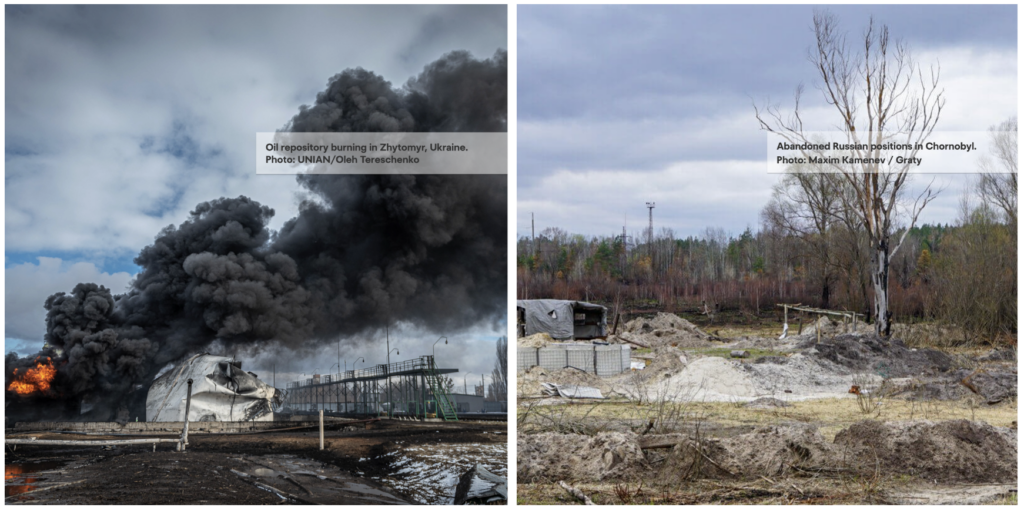
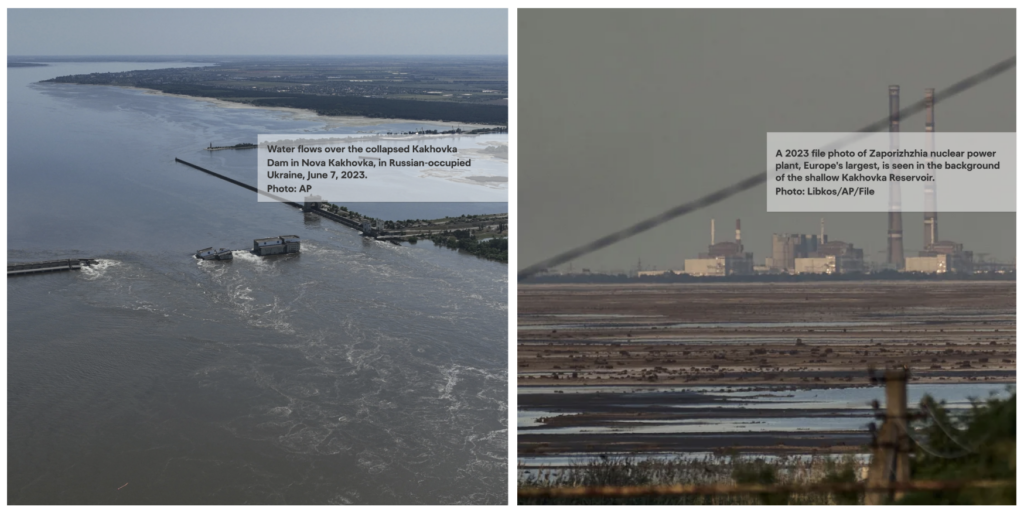
One year later, the devastation continues.
According to academic researchers, environmental damage from the war has now surpassed $56 billion. Explosions, oil spills, and targeted attacks on water and energy infrastructure have contaminated hundreds of square kilometers of land and water.
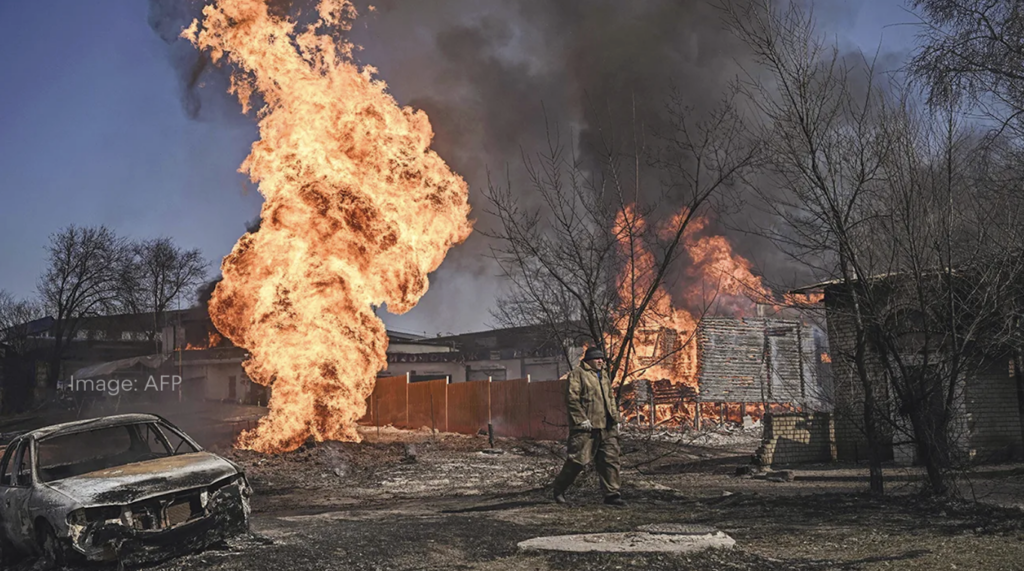
The Conflict and Environment Observatory continues to document these impacts — from toxic fires and military waste to the long-term effects of unexploded ordnance on agriculture and biodiversity. And as the study Environmental Health Impacts of Russia’s War on Ukraine outlines, these threats to nature are also direct threats to human health.
Ukraine is now the most mined country on Earth. Over 139,000 square kilometers — an area the size of Greece — are potentially contaminated with explosive remnants of war. Nearly two-thirds of that land is agricultural, once part of Ukraine’s role in feeding over 400 million people worldwide. But amid all this destruction, Ukrainian communities are planting seeds of resilience. And Razom is helping them grow.
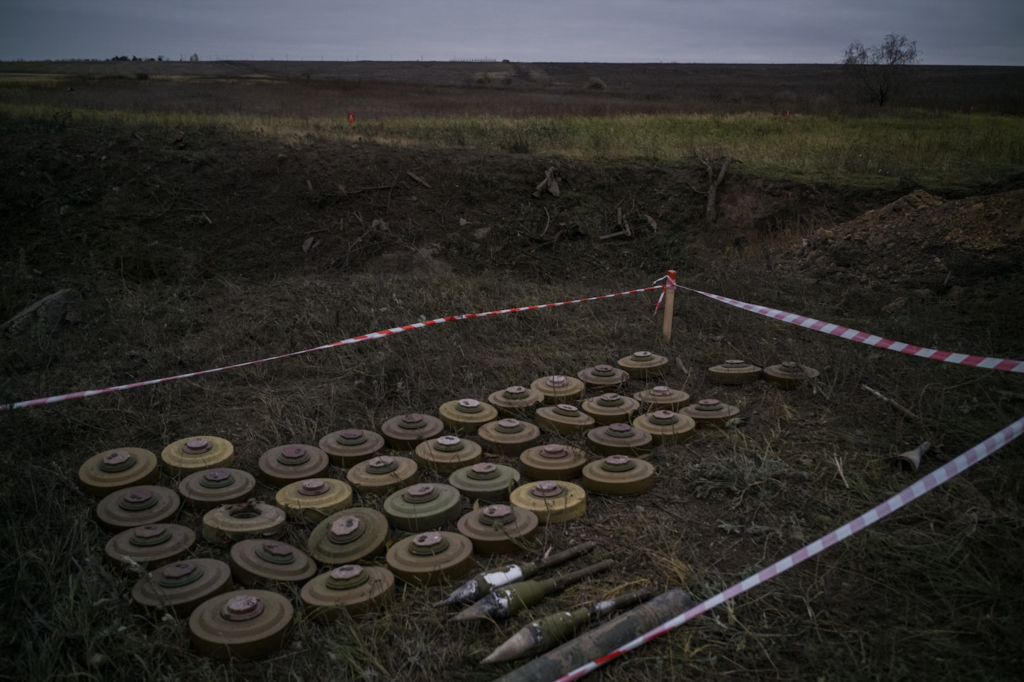
Rebuilding, Sustainably
Through our Relief program, Razom supports local organizations working at the intersection of humanitarian aid and ecological recovery — bringing power, water, and food security to those affected by the war:
In Opishnya, Poltava region, the Center of Initiatives installed a 6kW hybrid solar power plant on the “Svitanok” kindergarten, home to dozens of internally displaced families. Even during blackouts or shelling, children now have access to reliable electricity — a lifeline during wartime.
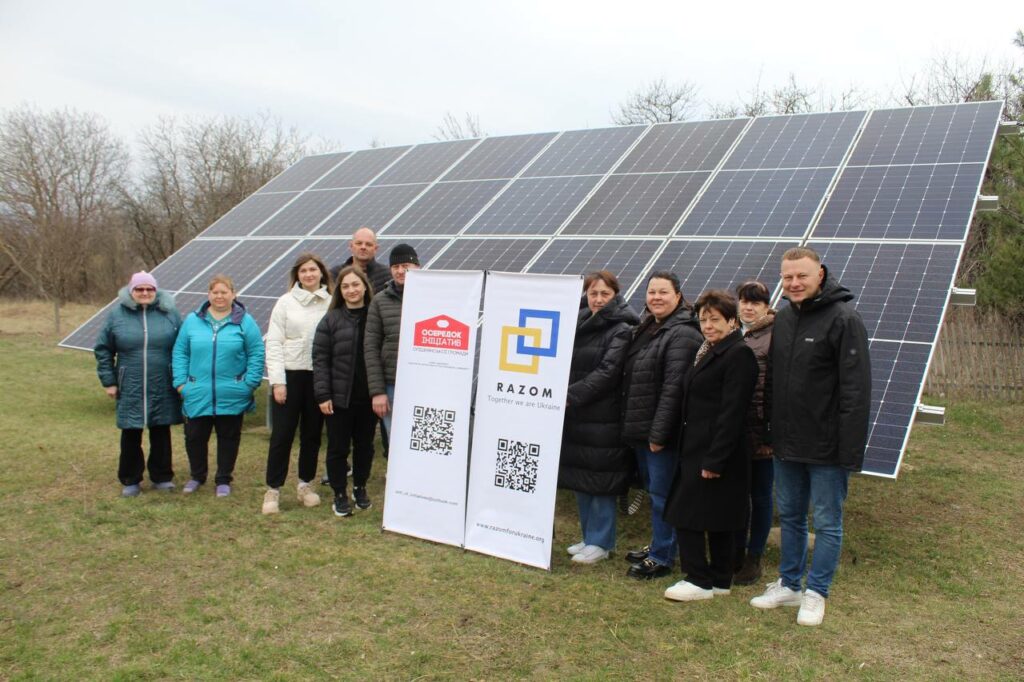
With Power In Ua, Razom helps fund portable water purification systems in frontline and remote communities. These systems not only provide safe drinking water where infrastructure has been destroyed — they also prevent contaminated runoff from polluting the land and groundwater.

Rescue NOW, another Razom partner, through the Reroot Now project, distributed seeds and agricultural support to regions where war has displaced farmers and devastated food systems. The damage is complex: in some areas, displaced mouse populations — with no natural predators left — have invaded seed storage facilities, destroying crops. It’s a powerful reminder that war disrupts every level of the ecosystem.
In the Kherson region, Kosmos Tabir (Camp), with support from Razom, installed solar mini-electric systems in frontline communities, powering village councils, schools, and first aid stations (FAPs). These systems help keep essential services running, even during blackouts or Russian attacks.

This Earth Day, Stand With Ukraine
Ukraine’s future must be both free and livable — and that means making wartime ecological damage part of the global conversation. As long-term recovery plans take shape, all of us — individuals, institutions, and governments — have a role to play in ensuring that sustainability, environmental justice, and safe land access are at the heart of what comes next.
In Ukraine, the fight for freedom is also a fight for clean water, for fertile soil, for air that’s safe to breathe, and land where children can play again. But none of this is possible unless Russia’s war — and the destruction it brings — is stopped.
Environmental recovery isn’t a distant goal — it’s a daily necessity. From solar panels keeping kindergartens running during blackouts, to water systems protecting families from contamination, to demining efforts making farmland usable again — Razom’s partners are building resilience every day.
This work reflects Razom’s mission: to build a more prosperous, democratic Ukraine — one where dignity, freedom, and self-determination extend not only to people, but to the land they call home. But we can’t do it alone.
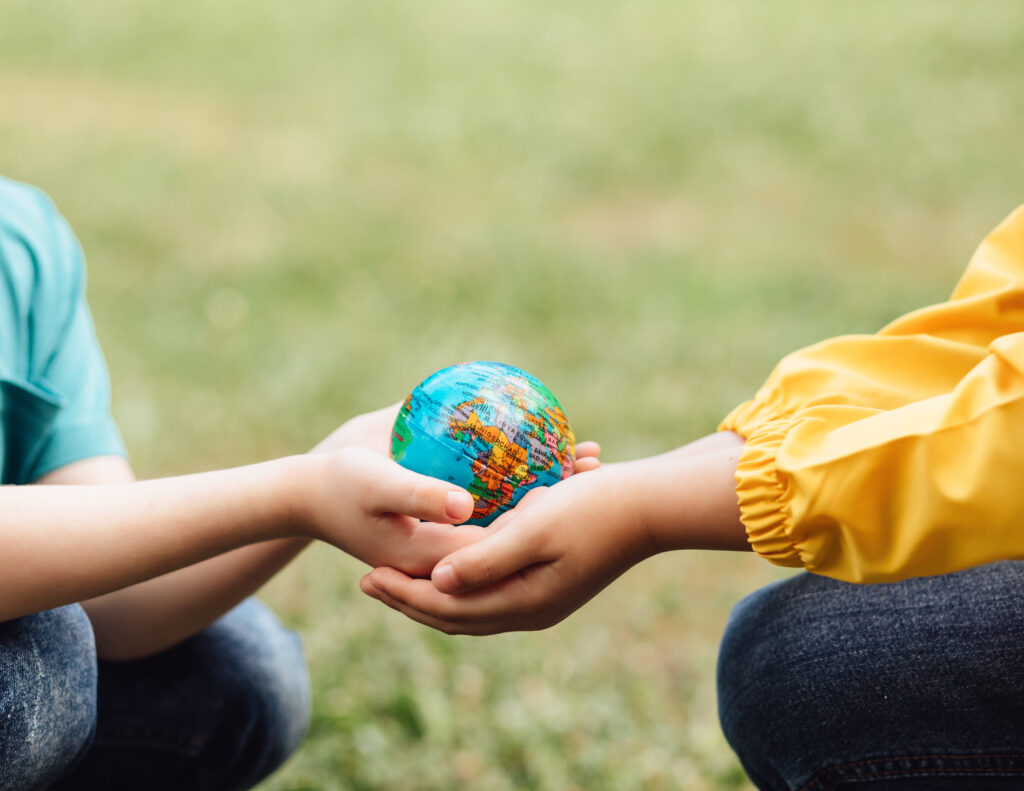
What You Can Do
👉 Donate to Razom Relief — your contribution helps fund real, local solutions.
👉 Read and share this article with you friends.
👉 Raise your voice — talk about Ukraine’s environmental crisis and contact your representatives. Urge them to support S.1241 and H.R.2548—to impose serious sanctions on Russia when it violates peace or escalates aggression.
🌍 This Earth Day, stand with Ukraine — for peace, for people, and for the planet.
